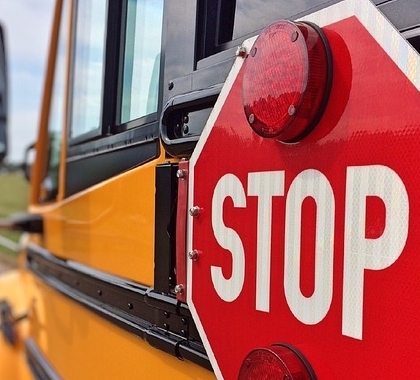The American Civil Liberties Union (ACLU) is suing a school district in central Pennsylvania on behalf of six refugees who allege district officials violated their right of equal access to a quality education by denying them entry to a top-ranking facility.
The plaintiffs range in age from 17 to 21 and originate from Burma, the Democratic Republic of Congo, Nepal, Somalia, and Sudan. ACLU filed a lawsuit against the School District of Lancaster (SDL) in July claiming the group of refugees “were, are, or may be in the future denied their right to equal educational opportunities and meaningful public education by Defendant School District of Lancaster in violation of the U.S. Constitution, federal civil rights statutes, and Pennsylvania education law.”
“[The plaintiffs] allege the district turned away older student refugees, those in their late teens, delayed enrollment for others beyond the legally allowed period, or automatically enrolled them in a privately run alternative school—the Phoenix Academy—often without adequately discussing or explaining the move to the students or their parents,” PennLive.com reported.
“Plaintiffs are refugees who have fled war, violence, and persecution from their native countries,” the lawsuit states, in part. “Having escaped their turbulent environment to resettle in America, these young immigrants yearn to learn English and get an education so they can make a life for themselves.”
“[SDL] says the same English language instruction is available at Phoenix Academy as at Lancaster’s McCaskey High School,” PennLive.com reported.
Conflicting Impressions
Qassim Hassan, a Somali refugee, took to the stand in August and told a federal court through an interpreter, “I did not find the school that I deserved.”
SDL officials call the suit unfounded and say school administrators are simply placing the refugee students in the facilities that best meet their educational needs.
Sharon O’Donnell, an attorney for SDL, said, “Phoenix Academy is not the prison that some people would make it out to be. They’re actually getting more focused instruction away from the distractions of the larger McCaskey High School.”
School Assignment ‘Problem’
Jonathan Butcher, education director for the Goldwater Institute, says governments shouldn’t limit students’ educational choices.
“The biggest problem is putting children in schools where they don’t want to be,” Butcher said. “If they’re eligible to attend a public school, then students should be eligible to attend a charter school. I do think this is a problem, just to be assigned to a school and told, ‘This is your only option.’ That’s just not right. The bottom line is this: You should be able to choose how and where your child should be educated.”
‘Little Self-Awareness’
Michael Schaus, communications director for the Nevada Policy Research Institute, says ACLU is being hypocritical about choice.
“It goes to show how little self-awareness the ACLU has when it comes to its disregard for educational choice,” Schaus said. “The ACLU’s own argument [in this Pennsylvania suit] demonstrates how inadequate the current system is at catering to the individual needs of students.”
ACLU “consistently litigates” to shut down any school choice programs across the country, Schaus says.
The Nevada Supreme Court is currently deciding the fate of the state’s education savings account program after the ACLU sued, alleging the program violates the state constitution by allowing parents to spend taxpayer money at religious schools.
“It’s a sad narrative,” Schaus said. “Despite their case in Pennsylvania, the ACLU remains unwilling to recognize the value of empowering families and parents—not bureaucrats and administrators—with control over their children’s education.”
Cheryl K. Chumley ([email protected]) writes from Stafford, Virginia.




